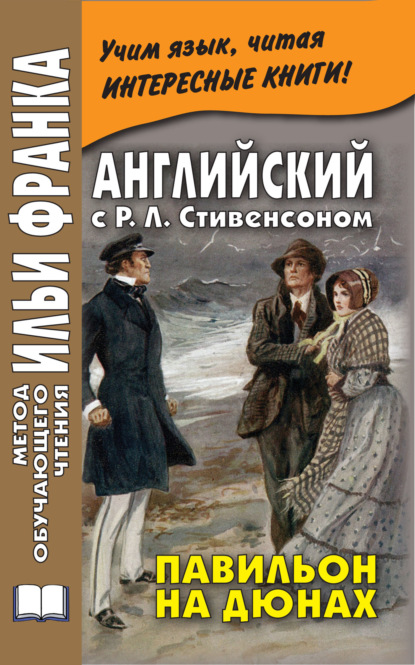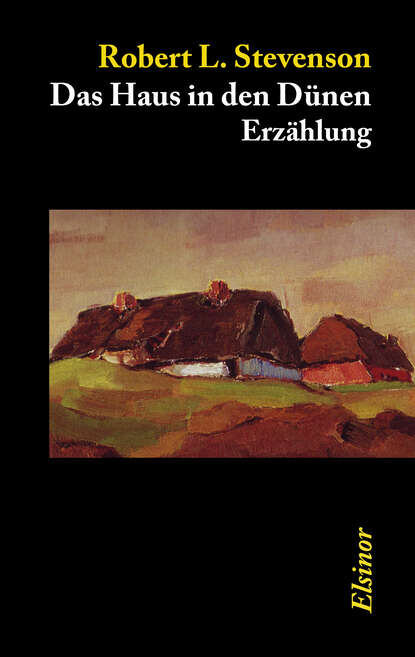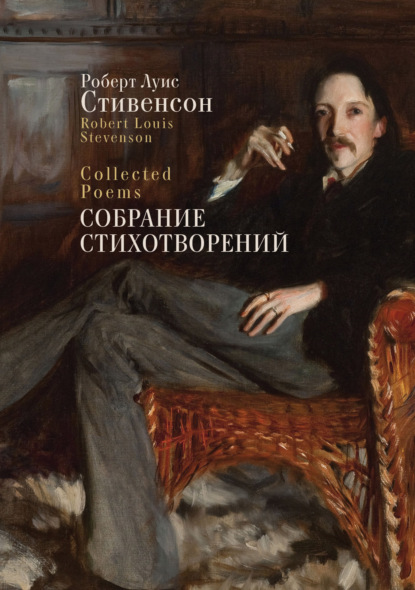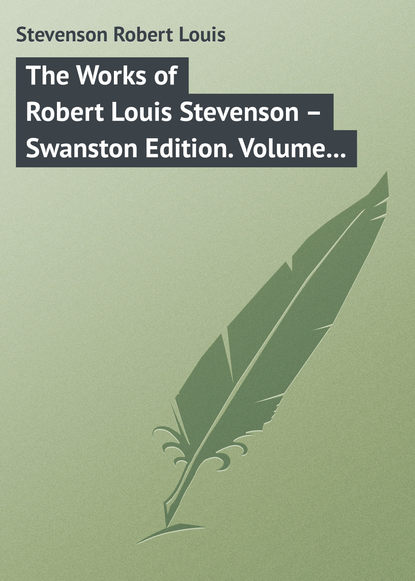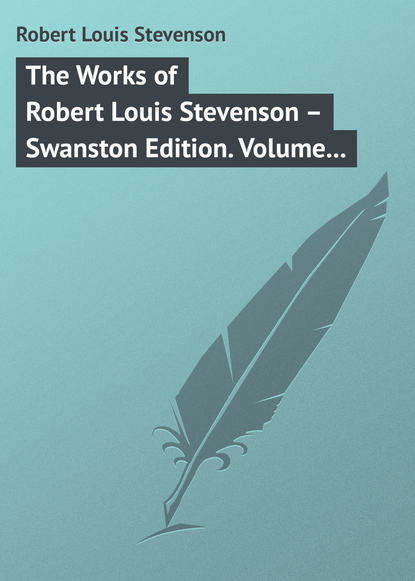 Полная версия
Полная версияПолная версия:
Роберт Льюис Стивенсон The Works of Robert Louis Stevenson – Swanston Edition. Volume 24
- + Увеличить шрифт
- - Уменьшить шрифт

Stevenson Robert Louis
The Works of Robert Louis Stevenson – Swanston Edition, Vol. 24
THE LETTERS OF ROBERT LOUIS STEVENSON
1882-1890
VII
THE RIVIERA AGAIN – MARSEILLES AND HYÈRES
In the two years and odd months since his return from California, Stevenson had made no solid gain of health. His winters, and especially his second winter, at Davos had seemed to do him much temporary good; but during the summers in Scotland he had lost as much as he had gained, or more. Loving the Mediterranean shores of France from of old, he now made up his mind to try them once again.
As the ways and restrictions of a settled invalid were repugnant to Stevenson’s character and instincts, so were the life and society of a regular invalid station depressing and uncongenial to him. He determined, accordingly, to avoid settling in one of these, and hoped to find a suitable climate and habitation that should be near, though not in, some centre of the active and ordinary life of man, with accessible markets, libraries, and other resources. In September 1882 he started with his cousin Mr. R. A. M. Stevenson in search of a new home, and thought first of trying the Languedoc coast, a region new to him. At Montpellier, he was laid up again with a bad bout of his lung troubles; and, the doctor not recommending him to stay, returned to Marseilles. Here he was rejoined by his wife, and after a few days’ exploration in the neighbourhood they lighted on what seemed exactly the domicile they wanted. This was a roomy and attractive enough house and garden called the Campagne Defli, near the manufacturing suburb of St. Marcel, in a sheltered position in full view of the shapely coastward hills. By the third week in October they were installed, and in eager hopes of pleasant days to come and a return to working health. These hopes were not realised. Week after week went on, and the hemorrhages and fits of fever and exhaustion did not diminish. Work, except occasional verses, and a part of the story called The Treasure of Franchard, would not flow, and the time had to be whiled away with games of patience and other resources of the sick man. Nearly two months were thus passed; during the whole of one of them Stevenson had not been able to go beyond the garden; and by Christmas he had to face the fact that the air of the place was tainted. An epidemic of fever, due to some defect of drainage, broke out, and it became clear that this could be no home for Stevenson. Accordingly, at his wife’s instance, though having scarce the strength to travel, he left suddenly for Nice, she staying behind to pack their chattels and wind up their affairs and responsibilities as well as might be. Various misadventures, miscarriages of telegrams, journeys taken at cross purposes and the like, making existence uncomfortably dramatic at the moment, caused the couple to believe for a while that they had fairly lost each other. Mrs. Stevenson allows me to print a letter from herself to Mr. J. A. Symonds vividly relating these predicaments (see p. 11 foll.). At last, in the course of January, they came safely together at Marseilles, and next made a few weeks’ stay at Nice, where Stevenson’s health quickly mended. Thence they returned as far as Hyères. Staying here through the greater part of February, at the Hôtel des Îles d’Or, and finding the place to their liking, they cast about once more for a resting-place, and were this time successful.
The house chosen by the Stevensons at Hyères was not near the sea, but inland, on the road above the old town and beneath the ruins of the castle. The Chalet La Solitude it was called; a cramped but habitable cottage built in the Swiss manner, with a pleasant strip of garden, and a view and situation hardly to be bettered. Here he and his family lived for the next sixteen months (March 1883 to July 1884). To the first part of this period he often afterwards referred as the happiest time of his life. His malady remained quiescent enough to afford, at least to his own buoyant spirit, a strong hope of ultimate recovery. He delighted in his surroundings, and realised for the first time the joys of a true home of his own. The last shadow of a cloud between himself and his parents had long passed away; and towards his father, now in declining health, and often suffering from moods of constitutional depression, the son begins on his part to assume, how touchingly and tenderly will be seen from the following letters, a quasi-paternal attitude of encouragement and monition. At the same time his work on the completion of the Silverado Squatters, on Prince Otto, the Child’s Garden of Verses (for which his own name was Penny Whistles), on the Black Arrow (designated hereinafter, on account of its Old English dialect, as “tushery”), and other undertakings prospered well. In the autumn the publication of Treasure Island in book form brought with it the first breath of popular applause. The reader will see how modest a price Stevenson was content, nay, delighted, to receive for this classic. It was two or three years yet before he could earn enough to support himself and his family by literature: a thing he had always been earnestly bent on doing, regarding it as the only justification for his chosen way of life. In the meantime, it must be understood, whatever help he needed from his father was from the hour of his marriage always amply and ungrudgingly given.
In September of the same year, 1883, Stevenson had felt deeply the death of his old friend James Walter Ferrier (see the essay Old Mortality and the references in the following letters). But still his health held out fairly, until, in January 1884, on a visit to Nice, he was unexpectedly prostrated anew by an acute congestion of the internal organs, which for the time being brought him to death’s door. Returning to his home, his recovery had been only partial when, after four months (May 1884), a recurrence of violent hemorrhages from the lung once more prostrated him completely; soon after which he quitted Hyères, and the epidemic of cholera which broke out there the same summer prevented all thoughts of his return.
The Hyères time, both during the happy and hard-working months of March-December 1883, and the semi-convalescence of February-May 1884, was a prolific one in the way of correspondence; and there is perhaps no period of his life when his letters reflect so fully the variety of his moods and the eagerness of his occupations.
To the Editor of the New York Tribune
At Marseilles, while waiting to occupy the house which he had leased in the suburbs of that city, Stevenson learned that his old friend and kind adviser, Mr. James Payn, with whom he had been intimate as sub-editor of the Cornhill Magazine under Mr. Leslie Stephen in the ’70’s, had been inadvertently represented in the columns of the New York Tribune as a plagiarist of R. L. S. In order to put matters right, he at once sent the following letter both to the Tribune and to the London Athenæum: —
Terminus Hotel, Marseilles, October 16, 1882.SIR, – It has come to my ears that you have lent the authority of your columns to an error.
More than half in pleasantry – and I now think the pleasantry ill-judged – I complained in a note to my New Arabian Nights that some one, who shall remain nameless for me, had borrowed the idea of a story from one of mine. As if I had not borrowed the ideas of the half of my own! As if any one who had written a story ill had a right to complain of any other who should have written it better! I am indeed thoroughly ashamed of the note, and of the principle which it implies.
But it is no mere abstract penitence which leads me to beg a corner of your paper – it is the desire to defend the honour of a man of letters equally known in America and England, of a man who could afford to lend to me and yet be none the poorer; and who, if he would so far condescend, has my free permission to borrow from me all that he can find worth borrowing.
Indeed, sir, I am doubly surprised at your correspondent’s error. That James Payn should have borrowed from me is already a strange conception. The author of Lost Sir Massingberd and By Proxy may be trusted to invent his own stories. The author of A Grape from a Thorn knows enough, in his own right, of the humorous and pathetic sides of human nature.
But what is far more monstrous – what argues total ignorance of the man in question – is the idea that James Payn could ever have transgressed the limits of professional propriety. I may tell his thousands of readers on your side of the Atlantic that there breathes no man of letters more inspired by kindness and generosity to his brethren of the profession, and, to put an end to any possibility of error, I may be allowed to add that I often have recourse, and that I had recourse once more but a few weeks ago, to the valuable practical help which he makes it his pleasure to extend to younger men.
I send a duplicate of this letter to a London weekly; for the mistake, first set forth in your columns, has already reached England, and my wanderings have made me perhaps last of the persons interested to hear a word of it. – I am, etc.,
Robert Louis Stevenson.To R. A. M. Stevenson
Terminus Hotel, Marseille, Saturday [October 1882].MY DEAR BOB, – We have found a house! – at Saint Marcel, Banlieue de Marseille. In a lovely valley between hills part wooded, part white cliffs; a house of a dining-room, of a fine salon – one side lined with a long divan – three good bedrooms (two of them with dressing-rooms), three small rooms (chambers of bonne and sich), a large kitchen, a lumber room, many cupboards, a back court, a large olive yard, cultivated by a resident paysan, a well, a berceau, a good deal of rockery, a little pine shrubbery, a railway station in front, two lines of omnibus to Marseille.
£48 per annumIt is called Campagne Defli! query Campagne Debug? The Campagne Demosquito goes on here nightly, and is very deadly. Ere we can get installed, we shall be beggared to the door, I see.
I vote for separations; F.’s arrival here, after our separation, was better fun to me than being married was by far. A separation completed is a most valuable property; worth piles. – Ever your affectionate cousin,
R. L. S.To Thomas Stevenson
Terminus Hotel, Marseille, le 17th October 1882.MY DEAR FATHER, – We grow, every time we see it, more delighted with our house. It is five miles out of Marseilles, in a lovely spot, among lovely wooded and cliffy hills – most mountainous in line – far lovelier, to my eyes, than any Alps. To-day we have been out inventorying; and though a mistral blew, it was delightful in an open cab, and our house with the windows open was heavenly, soft, dry, sunny, southern. I fear there are fleas – it is called Campagne Defli – and I look forward to tons of insecticide being employed.
I have had to write a letter to the New York Tribune and the Athenæum. Payn was accused of stealing my stories! I think I have put things handsomely for him.
Just got a servant!!! – Ever affectionate son,
R. L. Stevenson.Our servant is a Muckle Hash of a Weedy!
To Mrs. Thomas Stevenson
The next two months’ letters had perforce to consist of little save bulletins of back-going health, and consequent disappointment and incapacity for work.
Campagne Defli, St. Marcel, Banlieue de Marseille, November 13, 1882.MY DEAR MOTHER, – Your delightful letters duly arrived this morning. They were the only good feature of the day, which was not a success. Fanny was in bed – she begged I would not split upon her, she felt so guilty; but as I believe she is better this evening, and has a good chance to be right again in a day or two, I will disregard her orders. I do not go back, but do not go forward – or not much. It is, in one way, miserable – for I can do no work; a very little wood-cutting, the newspapers, and a note about every two days to write, completely exhausts my surplus energy; even Patience I have to cultivate with parsimony. I see, if I could only get to work, that we could live here with comfort, almost with luxury. Even as it is, we should be able to get through a considerable time of idleness. I like the place immensely, though I have seen so little of it – I have only been once outside the gate since I was here! It puts me in mind of a summer at Prestonpans and a sickly child you once told me of.
Thirty-two years now finished! My twenty-ninth was in San Francisco, I remember – rather a bleak birthday. The twenty-eighth was not much better; but the rest have been usually pleasant days in pleasant circumstances.
Love to you and to my father and to Cummy.
From me and Fanny and Wogg.
R. L. S.To Trevor Haddon
Campagne Defli, St. Marcel, Dec. 29th, 1882.DEAR SIR, – I am glad you sent me your note, I had indeed lost your address, and was half thinking to try the Ringstown one; but far from being busy, I have been steadily ill. I was but three or four days in London, waiting till one of my friends was able to accompany me, and had neither time nor health to see anybody but some publisher people. Since then I have been worse and better, better and worse, but never able to do any work and for a large part of the time forbidden to write and even to play Patience, that last of civilised amusements. In brief, I have been “the sheer hulk” to a degree almost outside of my experience, and I desire all my friends to forgive me my sins of omission this while back. I only wish you were the only one to whom I owe a letter, or many letters.
But you see, at least, you had done nothing to offend me; and I dare say you will let me have a note from time to time, until we shall have another chance to meet. – Yours sincerely,
Robert Louis Stevenson.An excellent new year to you, and many of them.
If you chance to see a paragraph in the papers describing my illness, and the “delicacies suitable to my invalid condition” cooked in copper, and the other ridiculous and revolting yarns, pray regard it as a spectral illusion, and pass by.
[Mrs. R. L. Stevenson to John Addington Symonds
I intercalate here Mrs. Stevenson’s extremely vivid and characteristic account of the weird misadventures that befell the pair during their retreat from St. Marcel in search of a healthier home.
[Campagne Defli, St. Marcel, January 1883.]MY DEAR MR. SYMONDS, – What must you think of us? I hardly dare write to you. What do you do when people to whom you have been the dearest of friends requite you by acting like fiends? I do hope you heap coals of fire on their heads in the good old Christian sense.
Louis has been very ill again. I hasten to say that he is now better. But I thought at one time he would never be better again. He had continual hemorrhages and became so weak that he was twice insensible in one day, and was for a long time like one dead. At the worst fever broke out in this village, typhus, I think, and all day the death-bells rang, and we could hear the chanting whilst the wretched villagers carried about their dead lying bare to the sun on their coffin-lids, so spreading the contagion through the streets. The evening of the day when Louis was so long insensible the weather changed, becoming very clear and fine and greatly refreshing and reviving him. Then I said if it held good he should start in the morning for Nice and try what a change might do. Just at that time there was not money enough for the two of us, so he had to start alone, though I expected soon to be able to follow him. During the night a peasant-man died in a house in our garden, and in the morning the corpse, hideously swollen in the stomach, was lying on its coffin-lid at our gates. Fortunately it was taken away just before Louis went, and he didn’t see it nor hear anything about it until afterwards. I had been back and forth all the morning from the door to the gates, and from the gates to the door, in an agony lest Louis should have to pass it on his way out.
I was to have a despatch from Toulon where Louis was to pass the night, two hours from St. Marcel, and another from Nice, some few hours further, the next day. I waited one, two, three, four days, and no word came. Neither telegram nor letter. The evening of the fourth day I went to Marseilles and telegraphed to the Toulon and Nice stations and to the bureau of police. I had been pouring out letters to every place I could think of. The people at Marseilles were very kind and advised me to take no further steps to find my husband. He was certainly dead, they said. It was plain that he stopped at some little station on the road, speechless and dying, and it was now too late to do anything; I had much better return at once to my friends. “Eet ofen ’appens so,” said the Secretary, and “Oh yes, all right, very well,” added a Swiss in a sympathetic voice. I waited all night at Marseilles and got no answer, all the next day and got no answer; then I went back to St. Marcel and there was nothing there. At eight I started on the train with Lloyd who had come for his holidays, but it only took us to Toulon where again I telegraphed. At last I got an answer the next day at noon. I waited at Toulon for the train I had reason to believe Louis travelled by, intending to stop at every station and inquire for him until I got to Nice. Imagine what those days were to me. I never received any of the letters Louis had written to me, and he was reading the first he had received from me when I knocked at his door. A week afterwards I had an answer from the police. Louis was much better: the change and the doctor, who seems very clever, have done wonderful things for him. It was during this first day of waiting that I received your letter. There was a vague comfort in it like a hand offered in the darkness, but I did not read it until long after.
We have had many other wild misadventures, Louis has twice (started) actually from Nice under a misapprehension. At this moment I believe him to be at Marseilles, stopping at the Hotel du Petit Louvre; I am supposed to be packing here at St. Marcel, afterwards we are to go somewhere, perhaps to the Lake of Geneva. My nerves were so shattered by the terrible suspense I endured that memorable week that I have not been fit to do much. When I was returning from Nice a dreadful old man with a fat wife and a weak granddaughter sat opposite me and plied me with the most extraordinary questions. He began by asking if Lloyd was any connection of mine, and ended I believe by asking my mother’s maiden name. Another of the questions he put to me was where Louis wished to be buried, and whether I could afford to have him embalmed when he died. When the train stopped the only other passenger, a quiet man in a corner who looked several times as if he wished to interfere and stop the old man but was too shy, came to me and said that he knew Sidney Colvin and he knew you, and that you were both friends of Louis; and that his name was Basil Hammond,1 and he wished to stay on a day in Marseilles and help me work off my affairs. I accepted his offer with heartfelt thanks. I was extremely ill next day, but we two went about and arranged about giving up this house and what compensation, and did some things that I could not have managed alone. My French is useful only in domestic economy, and even that, I fear, is very curious and much of it patois. Wasn’t that a good fellow, and a kind fellow? – I cannot tell you how grateful I am, words are such feeble things – at least for that purpose. For anger, justifiable wrath, they are all too forcible. It was very bad of me not to write to you, we talked of you so often and thought of you so much, and I always said – “now I will write” – and then somehow I could not…
Fanny V. de G. Stevenson.]To Charles Baxter
After his Christmas flight to Marseilles and thence to Nice, Stevenson began to mend quickly. In this letter to Mr. Baxter he acknowledges the receipt of a specimen proof, set up for their private amusement, of Brashiana, the series of burlesque sonnets he had written at Davos in memory of the Edinburgh publican already mentioned. It should be explained that in their correspondence Stevenson and Mr. Baxter were accustomed to keep up an old play of their student days by merging their identities in those of two fictitious personages, Thomson and Johnson, imaginary types of Edinburgh character, and ex-elders of the Scottish Kirk.
Grand Hotel, Nice, 12th January ’83.DEAR CHARLES, – Thanks for your good letter. It is true, man, God’s trüth, what ye say about the body Stevison. The deil himsel, it’s my belief, couldnae get the soul harled oot o’ the creature’s wame, or he had seen the hinder end o’ they proofs. Ye crack o’ Mæcenas, he’s naebody by you! He gied the lad Horace a rax forrit by all accounts; but he never gied him proofs like yon. Horace may hae been a better hand at the clink than Stevison – mind, I’m no sayin’ ’t – but onyway he was never sae weel prentit. Damned, but it’s bonny! Hoo mony pages will there be, think ye? Stevison maun hae sent ye the feck o’ twenty sangs – fifteen I’se warrant. Weel, that’ll can make thretty pages, gin ye were to prent on ae side only, whilk wad be perhaps what a man o’ your great idees would be ettlin’ at, man Johnson. Then there wad be the Pre-face, an’ prose ye ken prents oot langer than po’try at the hinder end, for ye hae to say things in’t. An’ then there’ll be a title-page and a dedication and an index wi’ the first lines like, and the deil an’ a’. Man, it’ll be grand. Nae copies to be given to the Liberys.
I am alane myself, in Nice, they ca’t, but damned, I think they micht as well ca’t Nesty. The Pile-on,2 ’s they ca’t, ’s aboot as big as the river Tay at Perth; and it’s rainin’ maist like Greenock. Dod, I’ve seen ’s had mair o’ what they ca’ the I-talian at Muttonhole. I-talian! I haenae seen the sun for eicht and forty hours. Thomson’s better, I believe. But the body’s fair attenyated. He’s doon to seeven stane eleeven, an’ he sooks awa’ at cod liver ile, till it’s a fair disgrace. Ye see he tak’s it on a drap brandy; and it’s my belief, it’s just an excuse for a dram. He an’ Stevison gang aboot their lane, maistly; they’re company to either, like, an’ whiles they’ll speak o’ Johnson. But he’s far awa’, losh me! Stevison’s last book ’s in a third edeetion; an’ it’s bein’ translated (like the psaulms of David, nae less) into French; and an eediot they ca’ Asher – a kind o’ rival of Tauchnitz – is bringin’ him oot in a paper book for the Frenchies and the German folk in twa volumes. Sae he’s in luck, ye see. – Yours,
Thomson.To Sidney Colvin
Stevenson here narrates in his own fashion by what generalship he at last got rid of the Campagne Defli without having to pay compensation as his wife expected.
Hotel du Petit Louvre, Marseille, 15 Feb. 1883.DEAR SIR, – This is to intimate to you that Mr. and Mrs. Robert Louis Stevenson were yesterday safely delivered
of aCampagneThe parents are both doing much better than could be expected; particularly the dear papa.
There, Colvin, I did it this time. Huge success. The propriétaires were scattered like chaff. If it had not been the agent, may Israel now say, if it had not been the agent who was on our side! But I made the agent march! I threatened law; I was Immense – what do I say? – Immeasurable. The agent, however, behaved well and is a fairly honest little one-eared, white-eyed tom-cat of an opera-going gold-hunter. The propriétaire non est inventa; we countermarched her, got in valuators; and in place of a hundred francs in her pocket, she got nothing, and I paid one silver biscuit! It might go further but I am convinced will not, and anyway, I fear not the consequences.
The weather is incredible; my heart sings; my health satisfies even my wife. I did jolly well right to come after all and she now admits it. For she broke down as I knew she would, and I from here, without passing a night at the Defli, though with a cruel effusion of coach-hires, took up the wondrous tale and steered the ship through. I now sit crowned with laurel and literally exulting in kudos. The affair has been better managed than our two last winterings, – I am yours,


